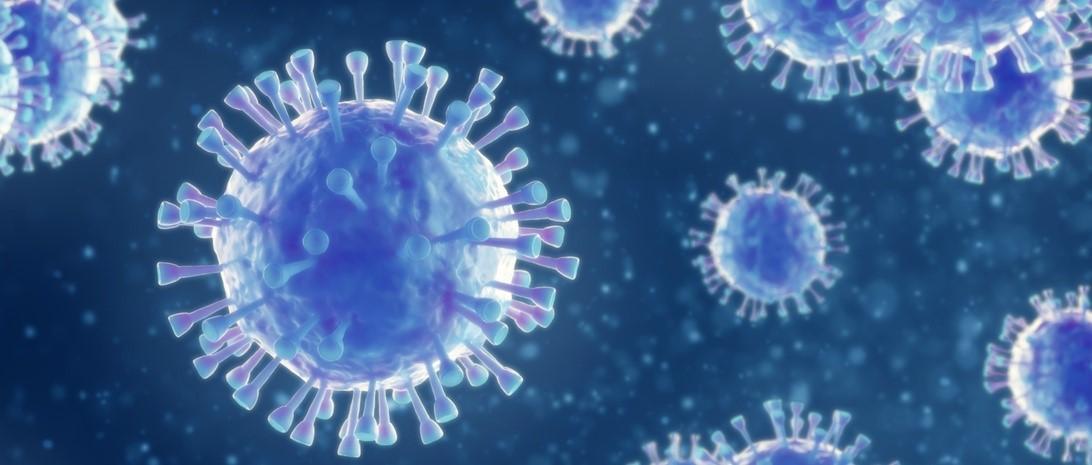
Swine flu in the UK: What are the symptoms of the new strain?
Peer reviewed by Dr Krishna Vakharia, MRCGPAuthored by Lydia SmithOriginally published 28 Nov 2023
- DescargarDescargar
- Compartir
A case of a new strain of swine flu has been confirmed in the UK. The infection was detected in a routine flu screening test at a GP surgery in North Yorkshire. Here's everything you need to know about the virus.
En este artículo:
Seguir leyendo
What is swine flu?
Swine flu is a type of viral infection. It's called swine flu because it resembles a respiratory infection that pigs can get. This is the first detection of this particular strain of swine flu - called A(H1N2)v - in a human in the UK.
Swine flu is usually caused by three subtypes called H1N1, H1N2 and H3N2. These types occasionally infect humans, usually after direct or indirect exposure to pigs or contaminated environments.
In 2009, a swine flu pandemic caused by H1N1 infected millions of people worldwide. However, the current confirmed case is from a different strain.
The person infected, who has not been identified, had a mild illness but has now recovered.
Selección de pacientes para Infecciones víricas

Infecciones
When is the flu most contagious?
Colds and flu share many of the same symptoms. So what distinguishes a bout of flu from the common cold? How can we avoid this potentially dangerous virus and, importantly, how can we protect others from infection?
por Gillian Harvey

Infecciones
Síndrome de la mejilla abofeteada
El síndrome de la mejilla abofeteada es normalmente una enfermedad leve y de corta duración. Sin embargo, la erupción puede parecer bastante dramática. No suele requerir tratamiento. Sin embargo, puede causar daños al feto, por lo que las mujeres embarazadas que entren en contacto con personas que padezcan esta enfermedad deben acudir al médico.
por la Dra. Hayley Willacy, FRCGP
How was this case of swine flu detected?
The case was discovered as part of routine national flu surveillance, undertaken by the UK Health Security Agency (UKHSA) and the Royal College of General Practitioners (RCGP).
The patient was tested by their GP in North Yorkshire on 9 November after experiencing respiratory symptoms. The infection was then identified via polymerase chain reaction (PCR) testing and genome sequencing - the process for analysing a sample of DNA.
Meera Chand, incident director at UKHSA, said experts are finding out more about how the person became infected1. They are not believed to have worked with pigs.
Officials are investigating where the infection came from and its risk to human health.
"It is thanks to routine flu surveillance and genome sequencing that we have been able to detect this virus," said Chand. "This is the first time we have detected this virus in humans in the UK, though it is very similar to viruses that have been detected in pigs.
"We are working rapidly to trace close contacts and reduce any potential spread. In accordance with established protocols, investigations are underway to learn how the person became infected and to assess whether there are any other related cases," she added.
Seguir leyendo
What are the symptoms of swine flu?
For most people, swine flu is mild. The symptoms include tiredness, a high temperature, a cough, a sore throat, aching muscles, chills, a runny nose, loss of appetite and sometimes vomiting and diarrhoea. Usually, the symptoms last for around a week.
Some people can become seriously ill with flu, including those that are immunocompromised or are pregnant. This is why it's important to have the annual flu jab. However, the routine flu jab does not protect against swine flu.
How do you treat swine flu?
Swine flu is treated with rest, fluids and over-the-counter pain medication such as paracetamol.
The UKHSA advises avoiding contact with other people while you have symptoms, especially if they are elderly or have existing medical conditions.
Seguir leyendo
How to protect yourself from the flu
Getting your annual flu vaccination will help to protect you from becoming seriously ill from other strains of flu.
Whilst there are vaccines for swine flu- these are only given under certain conditions.
To protect yourself from flu, it's important to wash your hands regularly with soap and water. You can also use hand sanitiser if you can't access soap and water - for example, if you're on public transport.
It also helps to keep your hands away from your face whenever possible, as germs are most likely to enter your body through your eyes, nose and mouth. If you’re ill with flu, being around others puts them at risk - so you should stay at home to avoid infecting others.
Para saber más
1. Gov.uk: UKHSA detects human case of influenza A(H1N2)v.
Historia del artículo
La información de esta página ha sido revisada por médicos cualificados.
28 Nov 2023 | Originally published
Autores:
Lydia SmithRevisado por expertos
Dr. Krishna Vakharia, MRCGP

Pregunte, comparta, conecte.
Explore debates, formule preguntas y comparta experiencias sobre cientos de temas de salud.

¿Se encuentra mal?
Evalúe sus síntomas en línea de forma gratuita